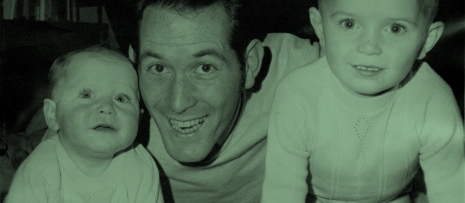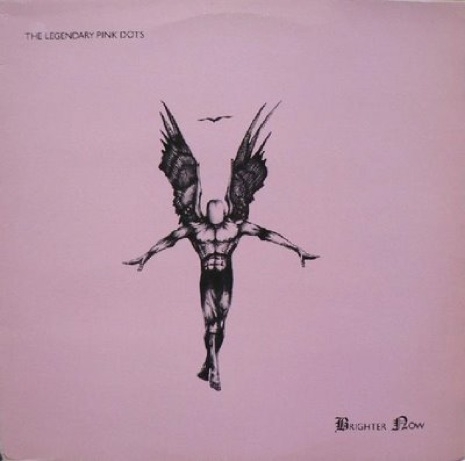
Andrew Liles by Davide Pepe
Hic Rhodus, hic saltus!
—Aesop (via Erasmus)
Andrei Tarkovsky called his art “sculpting in time,” but Stalker has the brisk pace of a Tom and Jerry cartoon compared to Andrew Liles’ new mega-album Colossus, a 50 LP box set released in digital form. Liles specializes in improving things, and Colossus is bigger and better music. Not only is it superior to other new records, it is superior to the 50 years of pop history it digests.
Last March, we premiered the first half of Liles’ audio monument to his half-century between heaven and earth: 50 tracks, 50 minutes each, one for every year since 1969. With the arrival of Part Two this month, the 42-hour opus is complete. It’s about three times the length of Wagner’s Der Ring des Nibelungen, 25 times as long as The Concert for Bangladesh, or 360 times the album version of “Total Eclipse of the Heart” (irrefragably scrambled in Part One).
The tracks, named after the songs that topped the chart on each of Liles’ birthdays, are original compositions distantly related to the number ones that inspired them—per Liles:
The music is either in the same key or with the same notes played but in a different order, backwards or inverted. Further music and notation has been added by myself. They are absolutely nothing like the originals.
Additionally, the words to the songs are formed from the lyrics to every Number One hit from the last 50 years. But with a twist.
I have adapted the lyrics by using the William Burroughs cut up method and further changed them to make some kind of structure, but they remain predominantly abstract and nonsensical.
Part Two brings us from 1994, represented by Mariah Carey’s “Without You,” to the present, and it is here that Liles really shines, because the hits are so much worse. If you listen to the originals, Celine Dion’s abominable “My Heart Will Go On”—bad enough in 1997-‘98—sounds like a Bach concerto next to what came after: Madonna’s “American Pie,” Westlife’s “Uptown Girl,” Chico’s “It’s Chico Time.” But when pop goes low, Liles goes high. Colossus draws strength from the passage of time that saps and enfeebles the top ten, right through the irresistible one-two combination that closes the album. By the time Edward Ka-Spel of the Legendary Pink Dots performs “Shape of You,” named after Ed Sheeran’s 2017 hit, and David Tibet narrates “God’s Plan,” after Drake’s supermarket sweep of last year, you may imagine that pop music is Tom Skerritt’s character in Alien, cocooned and begging for death, and Colossus is the muscular, merciful Sigourney Weaver who sets him on fire.
There is a lesson here for despairing pop fans: dross can be transformed into solid gold! All you have to do to make an Ed Sheeran song listenable is remove all of Ed Sheeran’s contributions to it, find a better Edward to sing it, and radically rewrite the music and lyrics. Then set it on fire. You can keep the original title, no problem.
Andrew Liles also recently released The Geometry of Social Deprivation, based on 23 shellac records from the twenties. The first album by Nodding God, Liles’ new group with David Tibet, comes out in May.
Stream Part Two of Colossus below and then buy it from Bandcamp.
Previously on Dangerous Minds:
‘Colossus’: Andrew Liles’ 42-hour opus reimagines 50 years of pop, a DM premiere
A half-hour version of Slayer’s ‘Angel of Death’ celebrates 30 years of ‘Reign in Blood’
Current 93’s David Tibet and Killing Joke’s Youth discuss their first album as Hypnopazūzu









